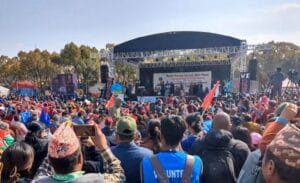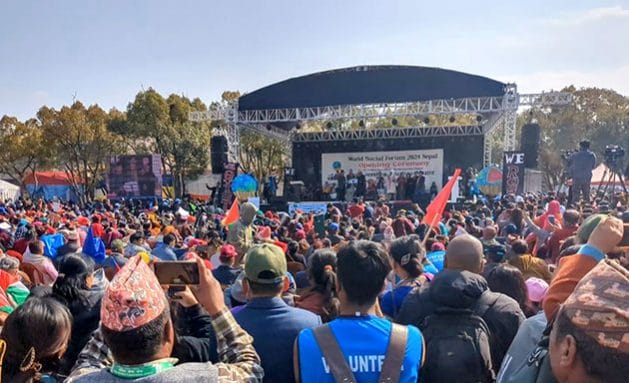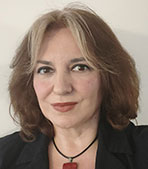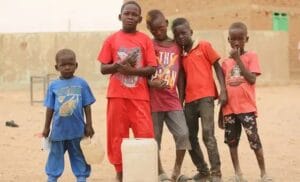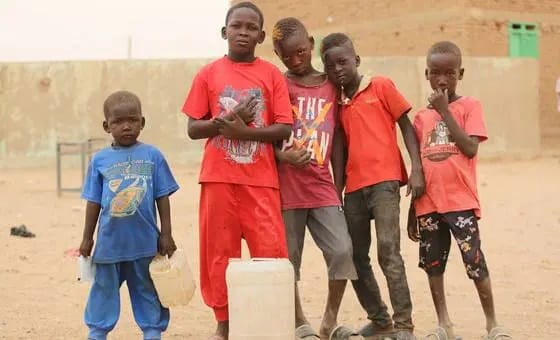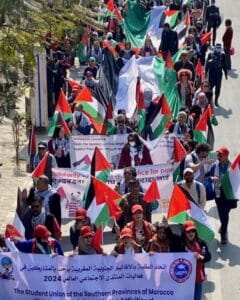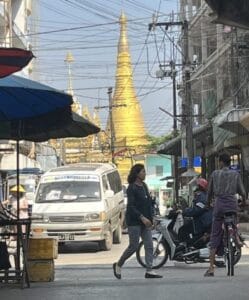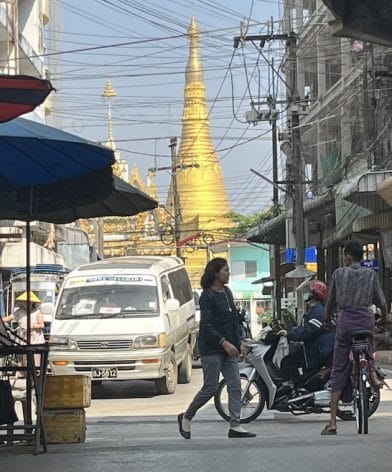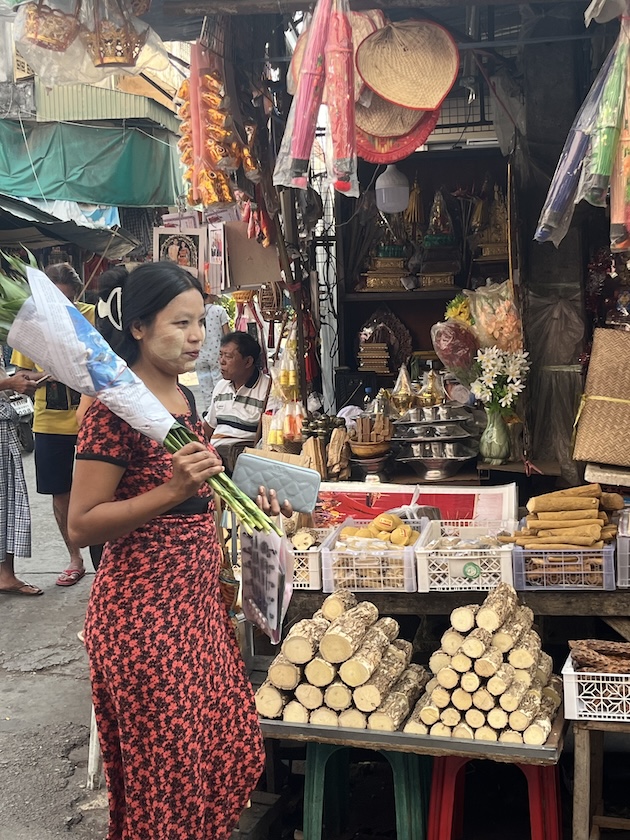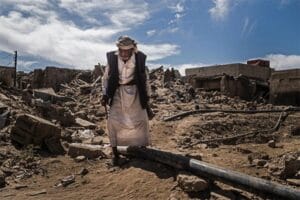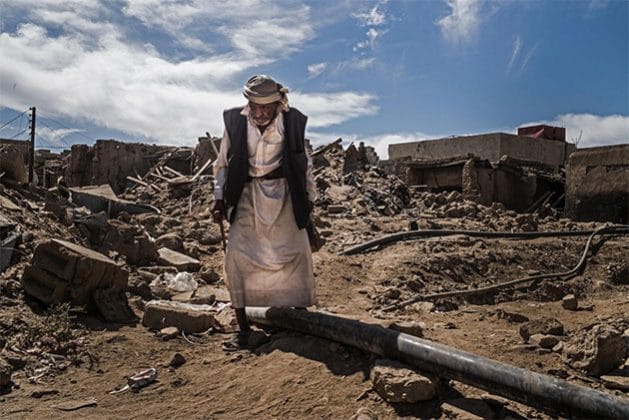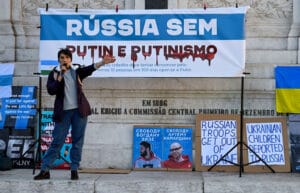
Armed Conflicts, Civil Society, Crime & Justice, Europe, Featured, Headlines, Human Rights, Press Freedom, TerraViva United Nations
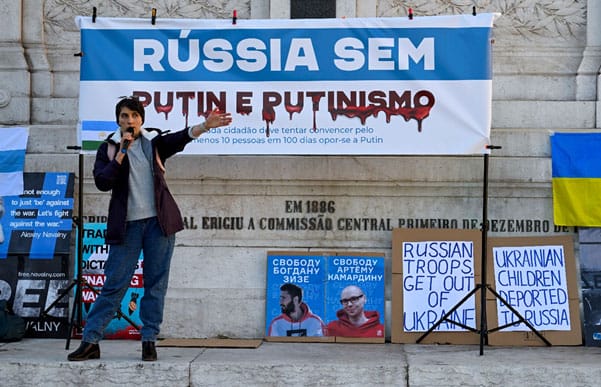
Credit: Horacio Villalobos/Corbis via Getty Images
– Russia’s full-scale invasion of Ukraine marked its second anniversary on 24 February. And while civil society is offering an immense voluntary effort in Ukraine, in Russia activists have faced intense constraints. The suspicious death of opposition leader Alexei Navalny is part of a great wave of repression. He’s the latest in a long list of people who’ve come to a sudden end after falling out with Vladmir Putin.
Putin is paying a backhanded compliment to the importance of civil society by suppressing it through every possible means. State-directed murder is the most extreme form of repression, but Putin has many more tricks up his sleeve. One is criminalisation of protests, seen when people showed up at improvised vigils to commemorate Navalny, laying flowers at informal memorials, knowing what would happen. Police arrested hundreds and the flowers quickly vanished.
Protests & vigils after the murder of Alexei Navalny. Ongoing thread. pic.twitter.com/0TnjWjCjWB
— OVD-Info English (@ovdinfo_en) February 16, 2024
An unrelenting assault
Human rights organisation OVD-Info reports that since the start of the full-scale invasion, the authorities have detained 19,855 people at anti-war protests, brought 894 criminal cases against anti-war activists and introduced 51 new repressive laws.
Among many other Russians jailed for symbolic acts of protest, Crimean artist Bohdan Zizu was handed a 15-year sentence last June for spray-painting a building in the colours of the Ukrainian flag. In November, artist Alexandra Skochilenko was sentenced to seven years for placing information about the war on supermarket price tags. Now people helping Ukrainian refugees living in Russia are being criminalised.
The government is also making it impossible for civil society and independent media organisations to keep working. Last August, the authorities declared independent TV channel Dozhd an ‘undesirable organisation’, in effect banning it from operating in Russia and criminalising anyone who shares its content. In August, courts ordered the closure of the Sakharov Center, a human rights organisation. Through similar means the authorities have forced several other organisations out of existence or into exile.
The state has also designated numerous people and organisations as ‘foreign agents’, a classification intended to stigmatise them as associated with espionage. In November, it added the Moscow Times to the list. The government has also doubled down on its attacks on LGBTQI+ people as part of its strategy to inflame narrow nationalist sentiments. And it keeps passing laws to further tighten civic space. Putin recently approved a law that allows the government to confiscate money and other assets from people who criticise the war.
The state is criminalising journalists as well. In March, it detained Wall Street Journal reporter Evan Gershkovich on spying charges, sending a signal that international journalists aren’t safe. The authorities are also holding Russian-US journalist Alsu Kurmasheva of Radio Free Europe, detained while paying a family visit to Russia. Putin is likely planning to use them as leverage for a prisoner swap. State authorities have put other journalists based outside Russia on wanted lists or charged them in absentia.
Meanwhile, Putin has pardoned real criminals for joining the fight. They include one of the people jailed for organising the 2006 assassination of pioneering investigative journalist Anna Politkovskaya.
It’s hard to hope for any let-up in the crackdown, at least as long as the war lasts. A non-competitive election will approve another term for Putin in March. No credible candidates are allowed to oppose him, and recently an anti-war politician who’d unexpectedly emerged to provide a focus for dissent was banned from standing. Last year the government amended laws to further restrict media coverage of the election, making it very hard to report on electoral fraud.
Weak or strong?
For a time last year Putin seemed weakened when his former ally Yevgeny Prigozhin rebelled, marching his Wagner Group mercenaries on Moscow. The two sides agreed a deal to end the dispute, and sure enough, two months later, Prigozhin died in a suspicious plane crash.
Putin has reasserted his authority. He may be gaining the upper hand in the war. Russia has greater firepower and is largely surviving attempts to isolate it financially, with repressive regimes such as China, India and Turkey picking up the slack in demand for its fossil fuels. It’s turned itself into a Soviet-style war economy, with state spending strongly focused on the military effort, although that can’t be long-term sustainable. Some of the world’s most authoritarian governments – Iran and North Korea – are also supplying weapons.
In comparison, Ukrainian forces are running out of ammunition. Support for Ukraine’s effort has come under greater strain due to political shifts in Europe and the breaking of political consensus in the USA, with Trump-affiliated Republicans working to block further military aid.
Putin may be riding high, but such is the level of state control it’s hard to get an accurate picture of how popular he is, and the election will offer no evidence. Given repression, protest levels may not tell the full story either – but some have still broken out, including those in response to Navalny’s death.
A vital current of dissent has formed around unhappiness with war losses. Last September, an independent poll suggested that support for the war was at a record low. Morale among Russian troops is reportedly poor and deserters have called on others to quit. Families of men serving in the military have held protests demanding the fighting ends.
Protesters have offered other recent moments of opposition. In November, people held a demonstration in Siberia against a local initiative to further restrict protests. In January, in Baymak in southern Russia, hundreds protested at the jailing of an activist. There’s also domestic unhappiness at high inflation.
Moments don’t make a movement, but they can offer inspiration that turns into one, and that often happens unexpectedly. Putin’s story is far from over. As with tyrants before, he’ll likely look invincible until just before he falls.
Andrew Firmin is CIVICUS Editor-in-Chief, co-director and writer for CIVICUS Lens and co-author of the State of Civil Society Report.

